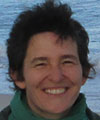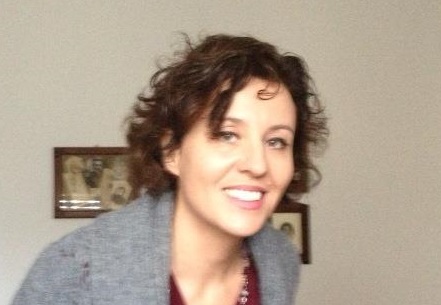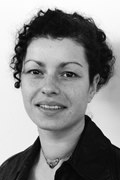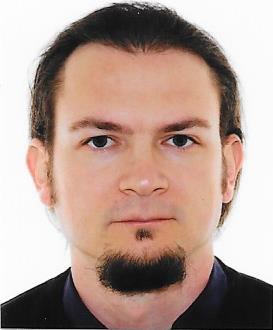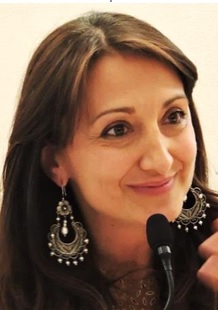Studying at the University of Verona
Here you can find information on the organisational aspects of the Programme, lecture timetables, learning activities and useful contact details for your time at the University, from enrolment to graduation.
Academic calendar
The academic calendar shows the deadlines and scheduled events that are relevant to students, teaching and technical-administrative staff of the University. Public holidays and University closures are also indicated. The academic year normally begins on 1 October each year and ends on 30 September of the following year.
Course calendar
The Academic Calendar sets out the degree programme lecture and exam timetables, as well as the relevant university closure dates..
| Period | From | To |
|---|---|---|
| Sem. 1A | Sep 25, 2023 | Nov 4, 2023 |
| Sem. 1B | Nov 13, 2023 | Dec 22, 2023 |
| Sem. 2A | Feb 19, 2024 | Mar 29, 2024 |
| Sem. 2B | Apr 9, 2024 | May 31, 2024 |
| Session | From | To |
|---|---|---|
| Sessione d'esame invernale | Jan 8, 2024 | Feb 17, 2024 |
| Sessione d'esame estiva | Jun 3, 2024 | Jul 27, 2024 |
| Sessione d'esame autunnale | Aug 26, 2024 | Sep 21, 2024 |
| Session | From | To |
|---|---|---|
| Sessione estiva | Jul 8, 2024 | Jul 13, 2024 |
| Sessione autunnale | Nov 4, 2024 | Nov 9, 2024 |
| Period | From | To |
|---|---|---|
| Festa di Ognissanti | Nov 1, 2023 | Nov 1, 2023 |
| Festa dell'Immacolata | Dec 8, 2023 | Dec 8, 2023 |
| Vacanze di Natale | Dec 23, 2023 | Jan 6, 2024 |
| Vacanze di Pasqua | Mar 30, 2024 | Apr 1, 2024 |
| Festa della Liberazione | Apr 25, 2024 | Apr 25, 2024 |
| Festa del Lavoro | May 1, 2024 | May 1, 2024 |
| Festa del Patrono S. Zeno | May 21, 2024 | May 21, 2024 |
| Festa della Repubblica | Jun 2, 2024 | Jun 2, 2024 |
| Vacanze estive | Aug 12, 2024 | Aug 17, 2024 |
Exam calendar
Exam dates and rounds are managed by the relevant Humanistic Studies Teaching and Student Services Unit.
To view all the exam sessions available, please use the Exam dashboard on ESSE3.
If you forgot your login details or have problems logging in, please contact the relevant IT HelpDesk, or check the login details recovery web page.
Should you have any doubts or questions, please check the Enrollment FAQs
Academic staff
 carlo.callegaro@univr.it
carlo.callegaro@univr.it
 laura.fontecedro@univr.it
laura.fontecedro@univr.it
 giacomo.mormino@univr.it
giacomo.mormino@univr.it
 piergiorgio.reggio@univr.it
piergiorgio.reggio@univr.it
Study Plan
The Study Plan includes all modules, teaching and learning activities that each student will need to undertake during their time at the University.
Please select your Study Plan based on your enrollment year.
1° Year
| Modules | Credits | TAF | SSD |
|---|
2° Year It will be activated in the A.Y. 2024/2025
| Modules | Credits | TAF | SSD |
|---|
| Modules | Credits | TAF | SSD |
|---|
| Modules | Credits | TAF | SSD |
|---|
| Modules | Credits | TAF | SSD |
|---|
Legend | Type of training activity (TTA)
TAF (Type of Educational Activity) All courses and activities are classified into different types of educational activities, indicated by a letter.
Hermeneutics of training and educational practices (2023/2024)
Teaching code
4S007379
Teacher
Coordinator
Credits
9
Language
Italian
Scientific Disciplinary Sector (SSD)
M-PED/03 - METHODOLOGIES OF TEACHING AND SPECIAL EDUCATION
Period
Sem. 1A, Sem. 1B
Courses Single
Authorized
Learning objectives
Hermeneutic represents a critical theory about understanding and interpreting literary texts, but the concept of “text” can be wide up to understand also educational practices. For this reason educational research tries to draw near to the territory of the practice - and to the text which are capable of revealing its meaning - through an hermeneutical compass. By the end of the course students will be able to: - know and understand the bases of hermeneutical research on educational practices, - apply the knowledge and the understandings acquired in the analysis of literary works that puts their focus on educational questions; - interpret literary works making personal judgements; - communicate effectively the developed ideas to different people; - reflect on their own learning and on the implications the studied topics may have on the personal and professional growth.
Prerequisites and basic notions
no specific prerequisites are required
Program
The pursuit of the objectives indicated above will take place by addressing the following specific topics: - Current training practices: typologies and evolutions - Hermeneutic knowledge of training processes: fundamental elements and significant stages of hermeneutic thought from antiquity to contemporary thought - Hermeneutic approaches: clinical of training, training as a transaction - Self-reflexivity of the trainer, as a critical ability to exercise the profession - Analysis of some training approaches: psycho-social, (auto)biographical training, self-training, experiential learning, transformative learning, community of practice, dialogical approach - Hermeneutics of some formative themes in artistic production (literature, painting, cinema, music)
Bibliography
Didactic methods
The course offers lessons with different approaches: frontal, interactive, with the use of images, videos and literary texts. All teaching materials (slides used in the classroom) are made available during the course.
Learning assessment procedures
The exam is oral and is carried out through an interview on the topics covered during the course and in the texts indicated in the bibliography. There is no difference in exam methods between attending and non-attending students. The preparation of a written exercise is foreseen, to be carried out according to the teacher's instructions. The exercise is evaluated from 1/30 to 10/30 of the overall grade.
Evaluation criteria
The evaluation criteria for the exam are: understanding of the contents, personal re-elaboration of the contents learned, the ability to establish links and connections between course contents and other knowledge gained in the academic, work or daily life, with particular reference to training experiences.
Criteria for the composition of the final grade
30/30
Exam language
italiano
Type D and Type F activities
SOFT SKILLS
Find out more about the Soft Skills courses for Univr students provided by the University's Teaching and Learning Centre: https://talc.univr.it/it/competenze-trasversali
CONTAMINATION LAB
The Contamination Lab Verona (CLab Verona) is an experiential course with modules on innovation and enterprise culture that offers the opportunity to work in teams with students from all areas to solve challenges set by companies and organisations.
Upon completion of a CLab, students will be entitled to receive 6 CFU (D- or F-type credits).
Find out more: https://www.univr.it/clabverona
PLEASE NOTE: In order to be admitted to any teaching activities, including those of your choice, you must be enrolled in the academic year in which the activities in question are offered. Students who are about to graduate in the December and April sessions are therefore advised NOT to undertake extracurricular activities in the new academic year in which they are not enrolled, as these graduation sessions are valid for students enrolled in the previous academic year. Therefore, students who undertake an activity in an academic year in which they are not enrolled will not be granted CFU credits.
| years | Modules | TAF | Teacher |
|---|---|---|---|
| 1° 2° | Art, memory and terrorism: the duty to protect our cultural heritage | D |
Olivia Guaraldo
(Coordinator)
|
| 1° 2° | Ciclo tematico di conferenze – sulla "leadership femminile": dati, riflessioni ed esperienze | D |
Paola Dal Toso
(Coordinator)
|
| 1° 2° | Creativity and insight: two sides of the same coin? | D |
Roberto Burro
(Coordinator)
|
| 1° 2° | Ethics in psychology | D |
Elena Trifiletti
(Coordinator)
|
| 1° 2° | Project Life Cycle | D |
Andrea Ceschi
(Coordinator)
|
| 1° 2° | Neuropsychology Laboratory | D |
Valentina Moro
(Coordinator)
|
| 1° 2° | Invisible plots in contemporary reality | D |
Rosanna Cima
(Coordinator)
|
| 1° 2° | University and DSA - Methods and strategies for tackling study and university studies | D |
Gianluca Solla
(Coordinator)
|
| years | Modules | TAF | Teacher |
|---|---|---|---|
| 1° 2° | Cities and Freedom | D |
Giacomo Mormino
(Coordinator)
|
| 1° 2° | Education and affectivity - 200 years after Christian education by Antonio Rosmini | D |
Fernando Bellelli
(Coordinator)
|
| 1° 2° | APsyM workshop on quantitative data analysis | D |
Margherita Brondino
(Coordinator)
|
| years | Modules | TAF | Teacher |
|---|---|---|---|
| 1° 2° | Cities and Freedom | D |
Giacomo Mormino
(Coordinator)
|
| 1° 2° | Legal clinics | D |
Alessia Maria Aurora Bevilacqua
(Coordinator)
|
| 1° 2° | APsyM workshop on quantitative data analysis | D |
Margherita Brondino
(Coordinator)
|
| 1° 2° | Laboratorio di etica e deontologia nella professione di psicologo | D |
Elena Trifiletti
(Coordinator)
|
| 1° 2° | Laboratorio di tecniche psicologiche per la gestione delle risorse umane | D |
Andrea Ceschi
(Coordinator)
|
| 1° 2° | Tai-Ti aiuto io | D |
Alessandra Cordiano
(Coordinator)
|
| 1° 2° | Verso le elezioni europee 2024 | D |
Massimo Prearo
(Coordinator)
|
Career prospects
Module/Programme news
News for students
There you will find information, resources and services useful during your time at the University (Student’s exam record, your study plan on ESSE3, Distance Learning courses, university email account, office forms, administrative procedures, etc.). You can log into MyUnivr with your GIA login details: only in this way will you be able to receive notification of all the notices from your teachers and your secretariat via email and soon also via the Univr app.
Graduation
Documents
| Title | Info File |
|---|---|
|
|
pdf, it, 99 KB, 13/10/23 |
|
|
pdf, it, 101 KB, 10/04/24 |
List of theses and work experience proposals
Student mentoring
Gestione carriere
Linguistic training CLA
Practical information for students
Documents
| Title | Info File |
|---|---|
|
|
pdf, it, 325 KB, 02/05/23 |
|
|
pdf, it, 212 KB, 02/05/23 |
|
|
pdf, it, 131 KB, 02/05/23 |
Stage e Tirocini
Lo/a studente/essa tirocinante curricolare sarà chiamato/a svolgere, presso gli Enti che lo ospitano, attività che prevedono competenze associate alla figura professionale dello Psicologo, in particolare lo Psicologo per la formazione, e nello specifico:
- attività di progettazione, realizzazione e valutazione dell’efficacia di interventi di percorsi formativi, nonché attività volte alla facilitazione dell'apprendimento nel ciclo di vita, in particolare in contesti organizzativi;
- attività che prevedano l’analisi delle relazioni interpersonali, dei contesti organizzativi e delle pratiche lavorative;
- attività che prevedano la gestione di processi organizzativi complessi, per lo sviluppo e la valorizzazione delle persone all'interno delle organizzazioni;
- attività di progettazione, realizzazione e valutazione di interventi psicologici volti all’orientamento scolastico e professionale;
- attività che prevedono l’uso di tecniche e strumenti di analisi delle situazioni e dei contesti, di raccolta di informazioni, e di interpretazione dei risultati, principalmente in relazione ai contesti organizzativi.
Tali attività si svolgono in Aziende ed Enti accreditati presso l’Ateneo. Lo/la studente/essa sarà seguito da un tutor accademico e da un tutor aziendale. Alle attività di tirocinio sono attribuiti n. 9 CFU (pari a 225 ore).
Linee Guida per lo Svolgimento dei Tirocini Curriculari
- Tutte le informazioni in merito agli stage per futuri studenti sono disponibili alla pagina Stage e tirocini.
- Tutte le informazioni in merito agli stage per studenti iscritti sono pubblicate in MyUnivr - come fare per - stage e tirocini.
- Tutte le informazioni in merito agli stage per le aziende sono disponili alla pagina Stage e tirocini per azienze.
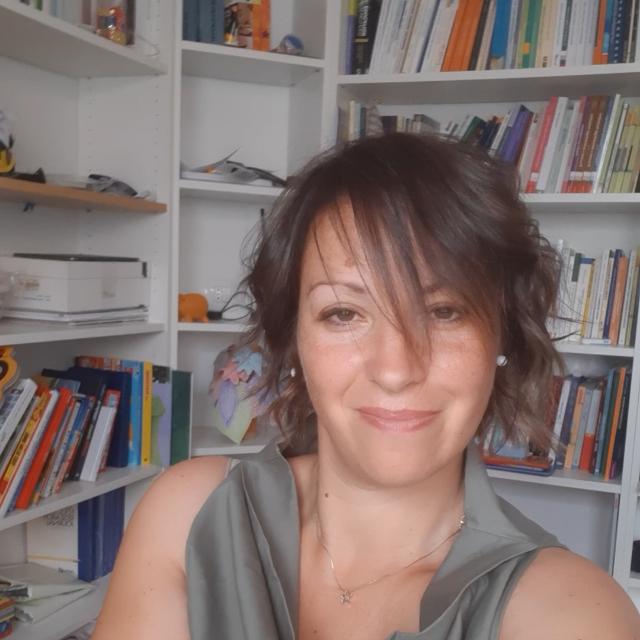
 045 8028383
045 8028383
